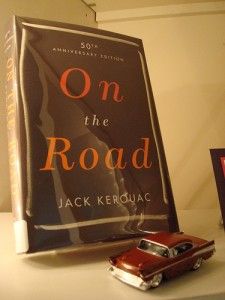Feature Essay

Orthodoxy and the Modern Creed
I've been in circles when young, growing families are discussed. The conversation goes something like this:
Person One: “E is having another child.”
Person Two: “Another! What is that, five?”
Person One: “Yeah; five kids, can you imagine?”
Person Two: “I can't imagine, but if that's what he wants, that's his call.”
Person One: “He doesn't necessarily want that many kids, but he and his wife don't believe in birth control, so they keep having more.”
Person Two: “Is it a religious thing?”
Person One: “I think so.”
Person Two: “That's ridiculous.”
From there the conversation either stops in silent mutual agreement that E must be a fanatic, superstitious or just dumb; or they plod forward with all sorts of cliches about the Catholic Church being stuck in the Middle Ages, how modern times demand birth control, etc.
It's odd. If E were having a lot of kids out of desire–i.e., if E wants a large family–that's fine. But if E is doing it out of religious conviction, out of a belief that there is an objective order of truth to which he must conform his actions, that's ridiculous–or superstitious, or dumb, or some other sign of mental deficiency.
In short, the desires of the naked will are more important than objective rights and wrongs. Desire trumps orthodox belief. It's a recurring theme of modern living that every orthodoxy person needs to understand if he or she hopes to drink of the joys of modern living without drinking its poisonous parts.
This Naked Will v Objective Rights and Wrongs is perhaps best examined under the prism of what philosopher Roger Scruton called the Liberal Creed: “Harm none and do as thou wilt.” I think it's perhaps better called the Modern Creed. I know why Scruton calls it the liberal creed (it's rooted in the liberal tradition that sprang from the seventeenth-century Enlightenment), but it identifies the mindset of a lot of people today who would otherwise cringe at the term liberal. So I'm going to call it the Modern Creed.
The Modern Creed is a combination of relativism (i.e., the belief that there are no objective truths to which we must conform our lives) and a desire to allow a person to flex his naked will. Its logical conclusion is the modern idol known as “Two Consenting Adults.” If something takes place between Two Consenting Adults, we revere it. We don't want to interfere with it. This is why a beast like Jack Kevorkian roamed for years.
The Modern Creed and its child, Two Consenting Adults, walk hand-in-hand with sex. I'm going to look at it in connection with divorce.
Divorce is one of the most self-regarding actions (i.e., exercises of the naked will) possible. With exceptions (trust me, I know many circumstances where one spouse carries the blame), both parties are usually at fault–and fault always entails some level of excessive self-regard, just as sin always entails a disproportionate amount of self-interest.
It's even worse when children are involved. And it's not worse just because the kids get hurt. It's worse because of the level, or depth, of fault that must sink right to the heart of the spouses. Let's be frank about it: Anyone who leaves his or her spouse when their children's well-being is a stake, is a person who is extremely self-centered, mentally imbalanced, or downright cold-hearted. (Those divorcees who justify their divorce on grounds that “the divorce will make me happier and therefore be better for my kids,” or that the marriage is so rough that it wasn't good for the kids, fall into the second–mentally imbalanced–division.)
It's interesting that the divorcing father is always quick to point out that he'd walk through fire for his children.
But he won't stay with their mother.
From the husband's standpoint, there's scarcely ever an adequate excuse for a divorce entered into with full consent. A wife might suffer abuse or infidelity-followed-by-spousal rape. Not the husband. With a few exceptions, every man can physically neutralize his wife. The wife can be a cheatin', drinkin', violent whore, but he can stay with her. He might avoid sexual contact, of course, and romantic dinners are probably unrealistic, but he can stay without risking his health. Of course, if she starts showing homicidal tendencies, he might need to leave, but within the realm of the domestically-believable, there's never a reason for a man to bolt.
I can hear penis-obsessed critics at this point: “What about sex! Is he supposed to go without It? If she's out whoring around, he's not going to want to sleep with her any more, and sex is too important to go without.” This is why I say sex has become the “holiest of holies.” We adore children–we spend billions of governmental dollars to help them, politicians stand on the heads of children as campaign stumps, charities beg for our money in the name of “the children.” But when it comes to sex, screw it, the children come second and will be trampled in the name of sex. Parents gotta be allowed to get divorced, if their bed life ain't makin' it.
Sex is the holiest of holies. Two Consenting Adults. Do as thou Wilt.
I remember an obnoxious movie called The Toxic Avenger, possibly the most tasteless movie ever made, that I watched about twelve times. In one scene, a hard-body blond, as part of a practical joke, is seducing a nerd named Melvin. She's rubbing her hands up and down his scrawny body, telling him how hot he makes her, then says, “I want to do It with you Melvin.” The nerd puzzles, “Do what?” and she just excites, “Do It, Melvin, do It!” as though there was nothing else to add.

In Jack Kerouac's On the Road, Kerouac wrote about a beatnik hero, the “wild, ecstatic” Rollo Greb, who “didn't give a damn about anything,” a “great scholar who goes reeling down the New York waterfront with original seventeenth-century musical manuscripts under his arm, shouting,” whose “excitement blew out of his eyes in stabs of fiendish light.” The book's hero Dean Moriarty admires Greb, and tells Sal Paradise: “That Rollo Greb is the greatest, most wonderful of all. . . that's what I want to be. I want to be like him. He's never hung-up, he goes every direction, he lets it all out . . . Man, he's the end! You see, if you go like him all the time you'll finally get it.” Sal, puzzled, asks “Get what?” Dean simply yells back: “IT! IT!” as though there were nothing left to add. In interviews after the book was published, Kerouac explained that the beatnik goal, and the source of its name, is the Beatific Vision, that divine and lofty sight sought by Christian saints over the millennia.
In The Toxic Avenger, sex was It. In On the Road, the beatific vision was It. In this connection, “Sex” is the “Beatific Vision.” It's the principle of association that we learned in fourth grade: If A = C, and B = C, then B = A.
I know this connection might seem fatuous. “It” after all is used frequently to connote anything of importance. But saying “It” when referring to sex has become commonplace. The Toxic Avenger wasn't contriving a new use of the term. “It” refers to sex because sex has come to occupy an extremely high position in our culture, so high, in fact, that it can be used to justify divorce, not to mention a slew of other wrongs. If It hasn't obtained the level of the Beatific Vision, it's getting close.
One of my earlier efforts (about ten years ago).
